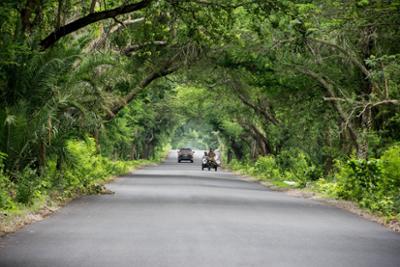

More than 300 initiatives have been analysed by the FiturNext Observatory for the FiturNext Challenge 2024
The Observatory closes this year's call, dedicated to how tourism can contribute to territorial revitalisation, and presents several of the key themes of the projects: management and promotion of territories, the importance of connections and tourist experiences..
FiturNext, the FITUR Observatory dedicated to promoting good tourism practices in terms of sustainability, has closed the call for initiatives for the 2024 Challenge dedicated to how tourism can contribute to the revitalisation of territories.
More than 300 initiatives have been analysed by the Observatory, of which 9 will be finalists and 3 will become the winners of this next edition to be held between 24 and 27 January at the Madrid International Tourism Trade Fair (FITUR).
Three topics for tourism to rebalance the territories
The generation of economic opportunities, the promotion of connections and infrastructures and the promotion of territories are some of the main focuses of tourism as a vehicle for revitalisation, which aims, among other things, to stop the exodus of population that leaves different municipalities empty. All of this is carried out with the active participation of visitors, residents and public and private promoters who seek to enhance the value of their localities, both for visitors and for the local population itself. During the progress of the research, some of the themes that encompass the services and values of the projects analysed have been defined:
- Management and promotion of depopulated territories: Putting spaces back on the map. Publicise and enhance the value of the different endogenous resources that make the territories worth visiting.
- Importance of connections: Communication, whether at the level of transport and infrastructures or telecommunications, is essential for the development of the territories. A good network of connections to other points that bring the local community and the different basic services available closer together can help to curb depopulation and even revitalise destinations.
- Tourist experiences: Visits to territories that are losing population are usually concentrated in rural environments. Here, the proximity of the local population and the experience of local traditions and cultures make the experience up close and personal.
A track record with more than 1,300 initiatives analysed by FiturNext
This is the fifth edition of the Observatory, which already has a great track record and recognition in the responsible and sustainable tourism industry. Over the past few years, FiturNext has analysed around 1,300 initiatives that address good sustainable practices in their destinations and contribute to fostering an industry that is more committed to the environment and the local community.
In addition, a series of webinars have been organised on past and future editions, focusing on regenerative tourism, which have hosted numerous experts and panellists from the sector on gender panelists on gender inclusion, accessibility and the regeneration of the natural environment. natural environment. With a view to the World Tourism Day on 27 September, the Ideas For Change team, coordinators of FITUR NEXT, will be holding a new online session that will continue to focus on tourism as a vector for positive change.
More information: www.ifema.es/fitur-next
About FITUR
FITUR is one of the world's leading trade fairs for tourism events and a hub par excellence for the Ibero-American market. Organised by IFEMA MADRID, it will hold its 43nd edition from 24 to 28 January 2023 at the Spanish capital's Trade Fair Centre, with the support of its declaration by the Government as an Event of Exceptional Public Interest. Added to this is the significant support it receives from institutions, countries and destinations, hotel chains, agencies and tour operators, technology companies, suppliers, means of transport, etc., which make FITUR a great platform of reference for discovering new developments, proposals and future trends in terms of specialisation, technology and sustainability, and the essential event for the entire heat chain of the international tourism industry.





